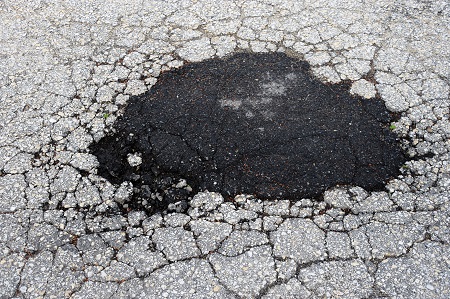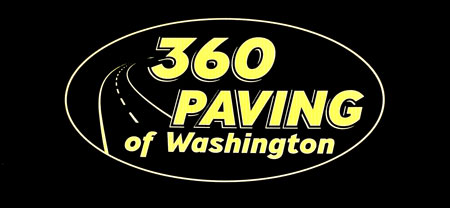Whether you’re a homeowner with a crumbling driveway or a business owner trying to maintain a parking lot, understanding the basics of asphalt repair is essential.
It’s not just about knowing when to repair; it’s also about recognizing the types of damaged asphalt, understanding the repair process, and learning how to prevent future issues.
This knowledge can save you time, money, and a lot of headaches.
Understanding Asphalt and Its Composition
Before delving into asphalt repair, it’s crucial you understand what asphalt is and its composite materials. Essentially, asphalt is a composite material commonly used to surface roads, parking lots, and driveways. It’s created from a mixture of aggregates, binder, and filler.
The aggregates, which constitute about 95% of asphalt’s composition, are materials like sand, gravel, or crushed rock. They’re the backbone of your asphalt, providing the strength and load-carrying capacity.
Next, we’ve got the binder, making up roughly 5% of the asphalt. This is usually bitumen, a sticky, black, and highly viscous liquid. It’s the glue that holds the aggregates together and provides waterproofing.
Lastly, there’s the filler, which is often fine dust or sand. It fills the gaps between the aggregates and the binder, creating a dense and strong matrix.
Understanding these components is fundamental to grasping how asphalt functions and how it can be repaired. It’s also key to appreciating why certain damages occur and how different repair techniques address specific issues. So, as you dive deeper into asphalt repair, keep this composition in mind. It’ll help inform your decisions and ensure effective, lasting repairs.
Common Asphalt Problems

Diving into the realm of common asphalt problems, you’ll encounter a variety of issues ranging from minor surface flaws to severe structural damage. Let’s examine these issues more closely.
Firstly, cracking is a common problem you’ll confront. It’s classified into several types, including fatigue, block, and edge cracking. Fatigue cracking, also known as alligator cracking, is the result of load-related deterioration due to a weakened base course or subgrade. Block cracking, on the other hand, forms a series of large rectangular cracks and is usually caused by temperature fluctuations. Edge cracking occurs near the pavement edge, primarily due to a lack of lateral support.
Secondly, distortion is another frequent asphalt issue. It includes depressions, rutting, upheaval, and shoving. Depressions are small areas with lower elevations than the surrounding pavement, while rutting is the depression in the wheel path. Upheaval refers to a sudden rise in pavement level, and shoving is a form of plastic deformation, often appearing as ripples across the surface.
Lastly, disintegration, presenting as pot holes or raveling, is a severe issue. Pot holes are holes in the pavement, while raveling is the wearing away of pavement particles.
Identifying Asphalt Damage
Having familiarized yourself with the common issues that plague asphalt surfaces, it’s crucial to understand how to identify these damages early for timely intervention.
- Start by visually inspecting the asphalt for any signs of wear and tear. You’re specifically looking for pot holes, cracks, and surface wear. Pot holes are easy to spot due to their size and depth. Asphalt cracks, on the other hand, might range from hairline fissures to larger, more noticeable splits.
- Surface wear is a common problem that’s often overlooked. Look for areas where the asphalt appears faded or worn down. This is typically a result of heavy traffic or weathering.
- Next, check for signs of water damage. If you notice areas where water pools or flows across the asphalt, this might indicate underlying issues.
- Lastly, pay attention to the asphalt’s texture. It should feel rough, not smooth. If it’s smooth, that could be a sign of excessive wear or improper installation.
Hiring Professionals for Asphalt Repair
When you’ve identified damage to your asphalt surface, it’s crucial to consider hiring professionals for the repair work, as they possess the necessary expertise and equipment to effectively address these issues. Professionals are well-versed in handling the complexities of asphalt repair, ensuring you get top-notch service and long-term results.
Consider the following when hiring professionals for asphalt repair:
Expertise:
- Knowledge and experience are vital in handling asphalt repair.
- They know the right techniques to apply.
- They understand the different types of asphalt damage and their suitable solutions.
Equipment:
- Advanced tools and machinery are required for effective repair.
- They’ve access to high-end equipment.
- They use industry-approved tools for precise and efficient repair.
Quality Assurance:
- Professionals guarantee the quality of their work.
- They offer warranties for their service.
- They adhere to industry standards and regulations.
Long-term Maintenance of Asphalt
To ensure the longevity of your asphalt surface, it’s essential to carry out regular maintenance, which includes activities such as routine inspections, timely repairs, and seal coating. Inspections allow you to identify small cracks and pot holes before they escalate into more significant issues. A small crack, if left unchecked, can expand, leading to substantial damage and costly repairs.
Timely repairs are crucial in preventing further deterioration. Asphalt repair methods like asphalt patching and crack filling can be used based on the severity of the damage. Seal coating, another vital aspect of asphalt maintenance, is a protective layer applied to the asphalt surface. It protects against harmful elements such as water, oils, and UV damage.
It’s also essential to consider proper drainage in your maintenance plan. Water is a significant enemy of asphalt surfaces; poor drainage can lead to water seeping into the asphalt layers, causing deterioration.
Moreover, traffic control measures should be in place to avoid excessive wear and tear in specific areas. Regularly redistributing traffic can significantly extend the asphalt’s lifespan.
Prevention Tips for Asphalt Damage
While maintaining asphalt involves regular inspections, repairs, and seal coating, it’s equally important to take preventive measures to avoid damage in the first place. Prevention is always better than cure, and it’s no different with asphalt. Here are some proactive steps you can take:
Regular Inspection and Quick Repairs:
- Check for early signs of damage, like cracks or pot holes, and fix them immediately.
- Don’t ignore minor issues; they can grow into major problems if left unattended.
Proper Drainage:
- Ensure that your asphalt surface has a well-designed drainage system. Water is asphalt’s worst enemy; poor drainage can lead to water seepage, causing cracks and pot holes.
Seal coating:
- Apply a seal coat every 2-3 years. This protective layer shields the asphalt from harmful UV rays, chemicals, and water.
- Seal coating also enhances the appearance of the asphalt, giving it a smooth, black finish.
If You Need Asphalt Repair Call 360 Paving of Washington
If you’re grappling with a deteriorating asphalt driveway or asphalt parking lot, don’t hesitate to reach out to 360 Paving of Washington, your professional solution for comprehensive and prompt asphalt repair services. Our company specializes in assessing and addressing the two most common types of asphalt damage: cracks and pot holes.
Cracks can form due to weathering, moisture, tree roots, and other stressors. As they deepen and widen, they can cause structural damage. Pot holes form when water freezes within the asphalt, causing it to crumble. Both aren’t only unsightly but also pose trip hazards and further damage to the asphalt layer due to water penetration.
360 Paving of Washington’s team of experts can effectively repair these issues if detected early, preventing costly replacements or extensive work like asphalt milling. We cater to both residential properties and commercial parking lots. Our technical knowledge and prompt asphalt services make us an ideal choice for maintaining the longevity of your asphalt surfaces.
So, don’t wait for the damage to worsen; call us today for a free estimate on your paving project and take the first step towards preserving your investment.
Visit our About Us page for more information about our superior asphalt paving company.

